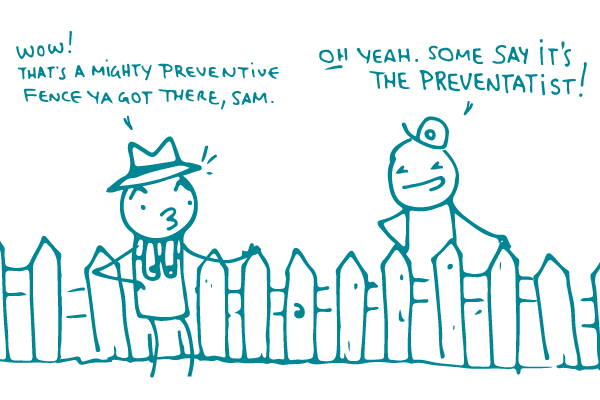
We don’t have to tell you, dear readers, that disease prevention is the backbone of public health. But when it comes to plain language, words like “preventable” and “preventive” sound like — yup, you guessed it — jargon (gasp!).
As much as we ❤ them as concepts, the truth is these terms tend to complicate simple ideas. If what we’re really saying is that people can take steps to avoid getting sick, let’s say that. Like many words,“preventable” and “preventive” can often be swapped out for plain language alternatives.
Consider these sentences:
Vaccines are important in addressing preventable diseases, like measles.
Preventive care is important for your health.
Instead, opt for:
Vaccines (shots) protect people from serious diseases, like measles.
Health care isn’t just for when you’re sick. Ask your doctor about screenings and other services that can keep you healthy.
Sometimes, you just can’t prevent using “preventive.” Say you’re a health insurer explaining that you cover a specific category of care called “preventive services.” Instead of getting rid of this term, teach it to people: “We now cover all preventive services, which include check ups, screenings, and counseling to prevent health problems.”
And whatever you do, dear reader, please steer clear of “preventative.” It’s “preventive” dressed up with an extra syllable (and you can guess how we feel about extra syllables).
The bottom line: In plain language writing, you can usually skip “preventable” and “preventive.”
Browse recent posts